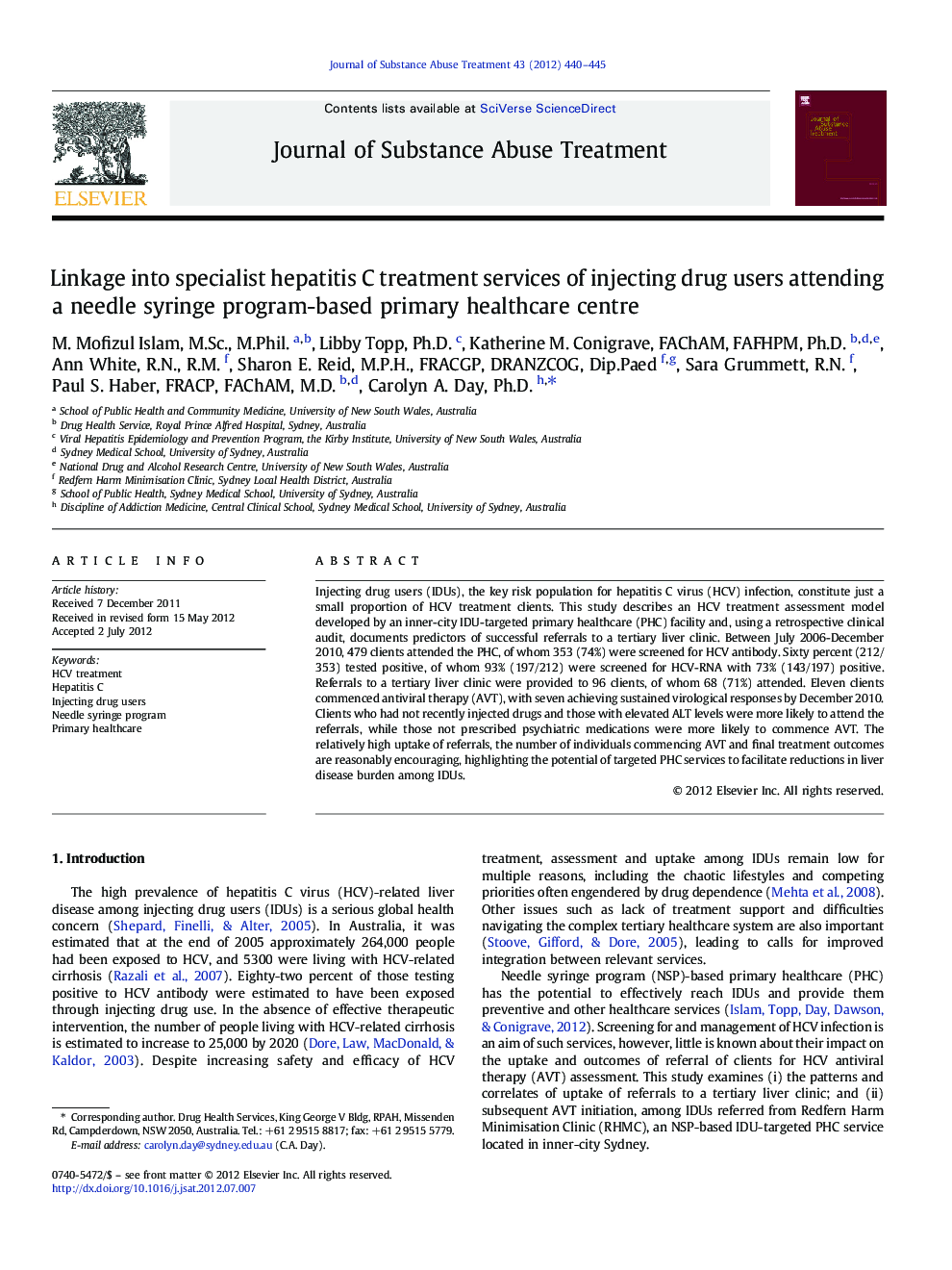| Article ID | Journal | Published Year | Pages | File Type |
|---|---|---|---|---|
| 329023 | Journal of Substance Abuse Treatment | 2012 | 6 Pages |
Injecting drug users (IDUs), the key risk population for hepatitis C virus (HCV) infection, constitute just a small proportion of HCV treatment clients. This study describes an HCV treatment assessment model developed by an inner-city IDU-targeted primary healthcare (PHC) facility and, using a retrospective clinical audit, documents predictors of successful referrals to a tertiary liver clinic. Between July 2006-December 2010, 479 clients attended the PHC, of whom 353 (74%) were screened for HCV antibody. Sixty percent (212/353) tested positive, of whom 93% (197/212) were screened for HCV-RNA with 73% (143/197) positive. Referrals to a tertiary liver clinic were provided to 96 clients, of whom 68 (71%) attended. Eleven clients commenced antiviral therapy (AVT), with seven achieving sustained virological responses by December 2010. Clients who had not recently injected drugs and those with elevated ALT levels were more likely to attend the referrals, while those not prescribed psychiatric medications were more likely to commence AVT. The relatively high uptake of referrals, the number of individuals commencing AVT and final treatment outcomes are reasonably encouraging, highlighting the potential of targeted PHC services to facilitate reductions in liver disease burden among IDUs.
